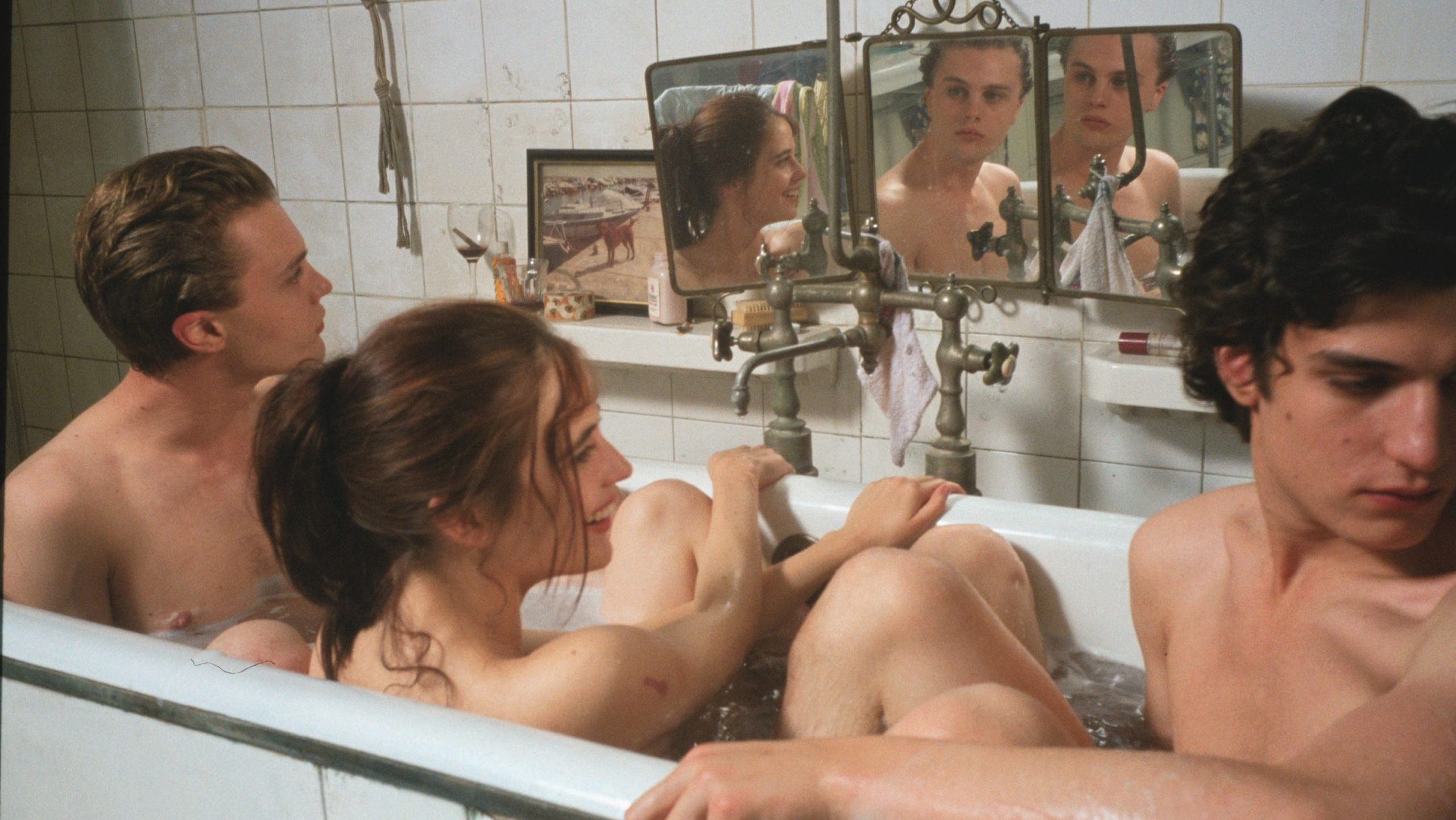
After World War II many of the countries in Europe experienced great transitions in film, especially France and Italy. Unlike the Italian films of Neorealism, the French films wanted to show that a camera can really capture reality and soon after that the French became completely obsessed with the movies (Mast and Kawin). This lead to the creation of the French New Wave which helped filmmakers rethink the way films worked. Though there were many great directors during its glory years like François Truffaut and Jean-Luc Godard, today Bernardo Bertolucci has brought its elements into his film The Dreamers, which he directed in 2003. The Dreamers, though it was done in 2003, is an excellent example of a French New Wave film because its relationship with the peak years of the New Wave as well as the stylistic elements involved.
The film takes place in the late 1960s during the student occupation protests in Paris France. Matthew (Michael Pitt) meets Isabelle (Eva Green) and her twin brother Théo (Louis Garrel) at one of the riots in front of the Cinémathèque and they quickly develop a strong friendship. All three of them are huge fans of films and enjoy playing cinema trivia games about the classics and even reenacting the films they adore. After Isabelle’s and Théo’s parents leave for their extended vacation, Matthew moves into their house only to be surprised and fascinated by what he finds. Once he is moved in the rules of their cinema trivia game change by adding sexual forfeits to the films they cannot name. This sparks a love triangle (and a strong sexual relationship) between all three of them. They suddenly become isolated from the France right outside their window. They do not care about the world around them, completely cutting off society and civilization. All the while the sexual relationship of Matthew and Isabelle grows a great deal, creating even more mind games between her and Théo, who are completely dependent and possessive of each other. Their bond is different from that of a normal brother and sister becoming jealous when they are with someone else and never letting go of each other. The sexual psychological drama created in the film, is not about the sex but the imagination of the movies and what the mind creates about them. At the end the one to go is Matthew, leaving the brother and sister bond stronger than ever while walking into a world of chaos and violence.
Bertolucci painted a wonderful picture on the screen about sex and movies, both of which he wanted to revisit from his own youth. Throughout the movie he has a number of tributes to the great filmmakers of the past by inserting a clip, quoting or adding a song from the soundtrack. These intertextual references to other films and to overall film culture are a key element of the French New Wave. Another element Bertolucci incorporates into The Dreamers is that idea of philosophy and politics. Movies right after World War II wanted to present meaningful values for the audience to understand. Although Bertolucci presented his movie in 2003, it talked about a time in which the youth revolted against the authority of the elders, creating a cultural revolution in France at the time.
Many films today have the style, the narrative and even the tone of the French New Wave. The Dreamers, directed by Bernardo Bertolucci brought these elements to the 21st century and presented a “new wave” of ideas to movies today. Even though it is not a classic, it gives the audience that classical movie feel with all of its playfulness and documentary techniques. The Dreamers is a beautiful film, comparing reality and dreams to what they are in real life.

“Before you can change the world you must realize that you, yourself, are part of it. You can’t stand outside looking in.”
Robin Renucci, as Father